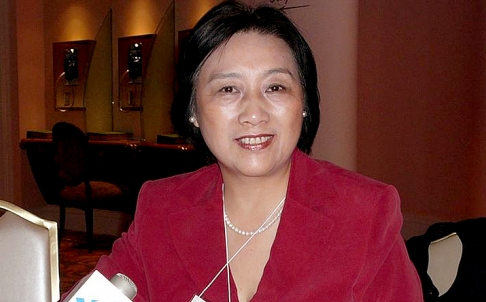Since Xi Jinping came to power in 2012, a number of high-profile journalists and government critics who found themselves on the wrong side of the law—including Charles Xue, Shen Hao, and Gao Yu—have been shown publicly “confessing” on television. Duihua Foundation wrote that such televised confessions can sabotage the legal process and “indicate that dignity and fairness are not afforded equally to all Chinese citizens.” But in giving a history of self-confessions in China, David Bandurski argues for China Media Project that something even more sinister is currently at work: the CCP’s “internal politics of dominance.” Bandurski uses the example of Shi Lianwen, a former executive at Liaoning TV, to illustrate how this plays out for the country’s media:
In Xi Jinping’s new confessional movement, there are shades of the Party’s troubled political past. Questions of guilt and innocence are subservient to the imperatives of political power.
Shi Lianwen, the former television executive whose videotaped self-confession is now being promoted through the official website of the Central Commission for Discipline Inspection, may not be innocent. He stands convicted of clearly specified acts of graft, including the acceptance of cash payouts of 11.4 million yuan, about US$1.8 million, while he was director of Liaoning Television from 2009 to 2012. (Corruption investigators, with their penchant for peppering corruption-related releases with lurid and colourful details, have also said Shi accepted a valuable piece of bloodstone.)
But watch or read Shi Lianwen’s “confession” on the CCDI website, where it is part of a new multimedia feature series called “Records of Confession” (忏悔录), and it becomes clear that Shi’s primary crime is not the breaking of the law per se — rather, it is his betrayal of the trust and responsibility vested in him by the Chinese Communist Party.
The supremacy of politics and ideology over the law becomes oddly clear as Shi Lianwen confesses to having an overly commercial mindset in his management of Liaoning Television. [Source]
In the New York Times, Murong Xuecun also writes about how the recent trend of publicized confessions emphasizes the supremacy of politics over individual dignity:
[..A]s part of Mr. Xi’s ongoing campaign to keep the media in line, CCTV broadcast the repentant statements of the likes of journalists Chen Yongzhou and Gao Yu and the respected editor Shen Hao. These influential figures appeared before the nation pressured to admit that they had blackmailed companies or to show regret for leaking national secrets.
Seventy-year-old Gao Yu, arrested for giving state secrets to foreign media, dressed in prison clothes, said to the camera, “I admit that what I’ve done touched on legal issues and threatened national interests.” She continued: “My actions were very wrong. I have sincerely learned my lesson, and I admit my guilt.”
Her lawyer later said that she had made her televised statement only because the government had threatened her son. As for Charles Xue and others, we have no evidence that similar tactics were used, but considering their predicament after arrest, noncooperation would have called for great courage.
Socialist countries tend to emphasize national and collective interest ahead of individual rights and dignity. This has been a constant throughout 66 years of Communist rule in China, but in the past two years the tendency has become increasingly strident. Cases of public shaming show us how in the name of some great cause, individual rights, dignity and privacy can all be sacrificed. [Source]
Gao Yu, a veteran journalist who was detained in the run-up to the 25th anniversary of June 4th, “confessed” on CCTV, but later said her confession was coerced. She was detained apparently on suspicion of leaking Document 9, an internal Party document which outlined the government’s plan to rein in civil society and the media while promoting economic reforms. Following a closed trial in November, Gao’s trial proceedings were recently delayed three months, according to her lawyer Shang Boujun. In a commentary published by Radio Free Asia, Bao Tong, former aide to Premier Zhao Ziyang, writes about Gao’s case:
Put bluntly, the case against Gao Yu for the so-called “leaking of state secrets overseas” is nothing more than a case of Gao Yu fulfilling the sacred duty of a journalist, by telling the public the facts about Document No. 9, which was issued by the office of the Communist Party central committee in 2013.
I hear that she is regarded as “smearing the name of the central committee,” “vilifying the party,” and “causing irreparable damage to the reputation of both party and country.”
Do these charges really stand up?
If Gao Yu had spread disinformation; if she had forged Document No. 9, than of course it would be right to charge her with smearing the name of party and state.
The problem is that the government has already said quite truthfully that Gao leaked, rather than forged, Document No. 9, confirming that her reports about it were totally accurate. [Source]








